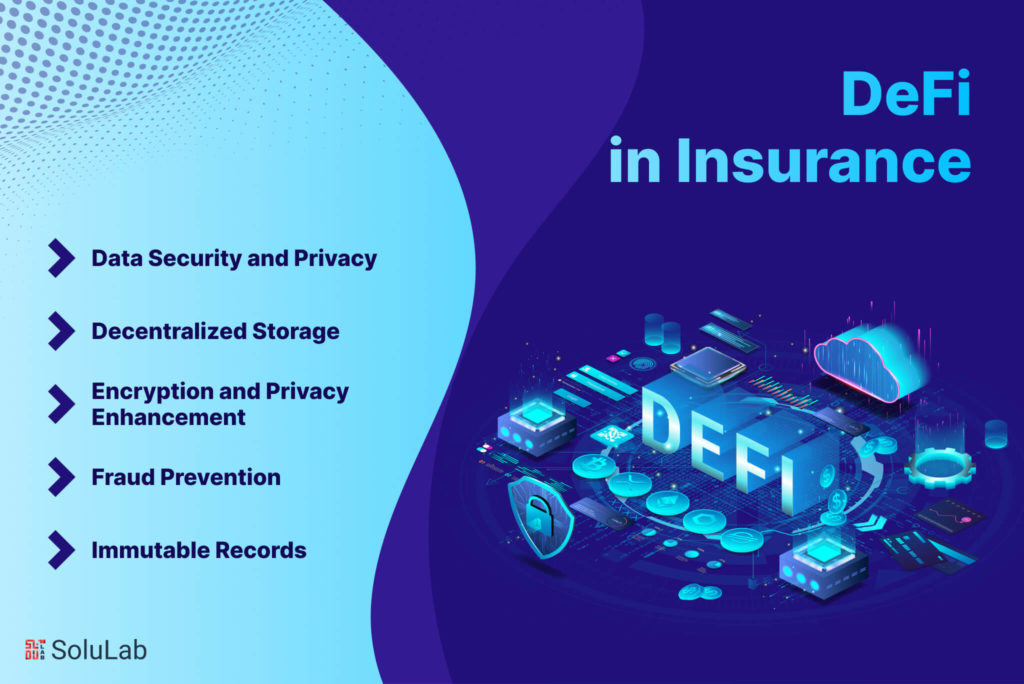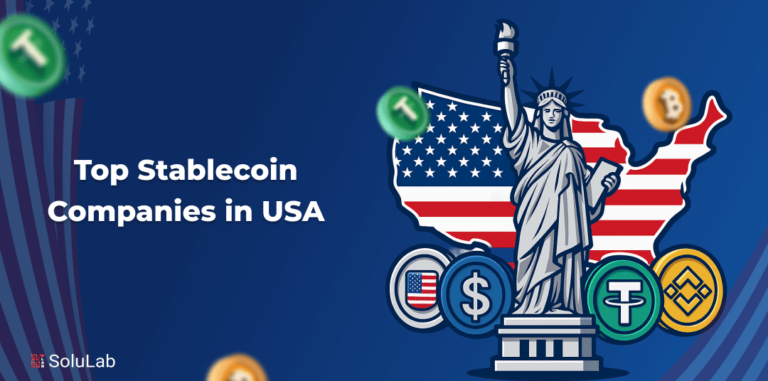
As the implementation of digital transformation in the FinTech sector advances, DeFi applications take the lead. This development is revolutionizing the way people exchange money.
The DeFi industry is experiencing rapid growth, with new businesses, protocols, and applications emerging frequently. With a total value of $255 billion locked in its protocols and numerous DeFi unicorns in circulation, this sector has become a force to reckon with.
The rise of DeFi has been remarkable, and it is hard to believe that the DeFi market is a relatively recent development. The term “DeFi” was first used in August 2018. However, despite its success, DeFi has faced challenges along the way. Hacks and protocol breaches have been significant obstacles to DeFi’s growth. Additionally, the threat of capital loss, along with regulation and education, arguably pose key barriers to widespread commercial adoption of DeFi.
A potential solution to these challenges is DeFi insurance, an emerging sector within an emerging sector with enormous potential. To gain a comprehensive understanding of DeFi insurance, let’s explore what it is, how it works, and the opportunities and use cases it offers businesses.
What is DeFi?
Decentralized finance, or DeFi, represents a significant departure from the conventional, centralized financial systems. Built on the Ethereum blockchain, DeFi applications facilitate peer-to-peer financing without the oversight of a centralized entity.
Accessible via the internet, DeFi products are operated and managed primarily by their users. The DeFi ecosystem encompasses a wide range of interconnected financial products and Insurance for DeFi protocols, including lending and borrowing platforms, stablecoins, and tokenized BTC. Catering to diverse stakeholders such as individuals, developers, and institutions, DeFi has emerged as a dynamic and active sector within the blockchain landscape.
DeFi’s groundbreaking aspect lies in the novel use cases it enables for crypto assets, such as synthetic assets, decentralized exchanges, and flash loans, which are not feasible in traditional fiat-based financial systems.
This paradigm shift in financial infrastructure presents various opportunities, risks, and implications for trust. DeFi is disrupting the banking industry at a rapid pace, prompting the exploration of new possibilities. Billions of dollars worth of cryptocurrency transactions have already been processed through DeFi applications, with the volume continuously increasing.
Pros and cons of DeFi
DeFi is a rapidly growing sector within the blockchain, offering a range of financial products and services in a decentralized manner. However, like any emerging technology, DeFi comes with its own set of advantages and disadvantages.
Pros:
- Access to everyone
- Transparency
- Time-saving
- Reduced possibility of human error
- No intermediaries
Cons:
- Infancy stage
- Lack of scalability
- Risk of scam
- Lack of user-friendliness
- High demand – high-interest rates
What is DeFi insurance?
In the domain of decentralized finance (DeFi), insurance, analogous to traditional insurance, safeguards against financial risks within the DeFi ecosystem. Just as blockchain revolutionized traditional insurance, DeFi insurance protocols serve as a safety net for the crypto industry, offering preventative measures and protection.
For instance, if you have invested in a DeFi platform and recognize potential vulnerabilities, defi insurance platform development can mitigate the risk of financial loss. In the event of a covered loss, you can claim compensation from a DeFi asset insurer.
Insurance premiums in DeFi are determined by various factors, including coverage type, provider, and policy duration. However, it’s essential for consumers to understand the specific incidents covered by their policies.
Similar to traditional insurance, it’s crucial to comprehend the risks you are protecting yourself against in the DeFi realm.
The DeFi insurance market is relatively nascent but is poised for rapid growth given the increasing transaction volume in decentralized finance. As the industry matures, protocols, systems, and processes will evolve, leading to more coverage options and an expansion of DeFi value protection.
Here are some notable Insurance for DeFi providers, although there are many more emerging as the sector evolves:
- Union
- InsurAce
- Solace
- itrust.Finance
- Insure DeFi
- Nexus Mutual
It’s important to conduct your own research and choose the service providers that best align with your needs.
How does DeFi insurance work?
In the realm of DeFi (decentralized finance), insurance takes on a distinctive form. Instead of relying on a single entity or company, coverage is obtained through a distributed network of providers. This decentralized approach is integral to defi insurance platform development’s true nature.
Anyone can become a coverage provider by contributing capital to a shared “capital pool.” In essence, you become a liquidity provider. As a provider, you have the flexibility to select which specific events or protocols you want to offer coverage for.
For example, suppose you have a strong conviction that trading platform X will not be compromised. In that case, you can confidently add liquidity to the capital pool designated to cover that particular incident. Should platform X be breached despite your expectations, the funds in the capital pool would be utilized to compensate customers who purchased coverage against such a hack.
However, providing coverage carries inherent risks. As a coverage provider, you are rewarded for taking on this risk through interest earned on the funds you lock up. This interest is often (partially) derived from the premiums paid by customers seeking insurance coverage.
Business opportunities of DeFi
The increasing adoption of blockchain technology across various sectors is revolutionizing the way businesses operate and interact with customers. This has led to significant advancements in the way transactions are made and customers engage with businesses.
In particular, Decentralized Finance (DeFi) technology presents immense opportunities for businesses seeking global expansion and acquiring new customers. DeFi offers several key advantages that can enhance profitability, customer satisfaction, and scalability.
-
Trading digital assets
In the world of cryptocurrency, decentralized exchanges (DEXs) and other platforms facilitate peer-to-peer trading without the need for a central authority. These exchanges, such as automated market makers and token-swapping aggregators, empower users to maintain sovereignty over their funds. With an internet connection and a wallet like MetaMask, traders can access crypto assets from anywhere in the world using popular DEXs like Uniswap, 0x, Sushiswap, and ParaSwap. Notably, these decentralized insurance protocol exchanges are increasingly becoming competitive with centralized exchanges in the cryptocurrency market.
-
Rapid transactions
DeFi assures frictionless, speedy, and highly secure financial transactions. Thanks to distributed ledger technology, transactions are not controlled by a single entity. By integrating DeFi applications, businesses can provide customers and connected partners with a seamless financial experience.
This technology is beneficial for businesses where employees need to execute frequent transactions, as it minimizes the costs associated with third-party payment services.
In developing regions, DeFi has gained traction among smaller businesses whose needs are not adequately met by the traditional banking system. For example, in ASEAN, businesses leverage payment services like Tranglo, and in Africa, BitPesa is utilized, alongside prominent DeFi exchanges, to directly send money or convert payments into stablecoins pegged to the U.S. dollar for international remittance.
-
Protocols for lending
Compound and Aave are platforms offering non-custodial, peer-to-peer lending with decentralized services. These platforms allow users to:
- Borrowed funds use their cryptocurrency assets as collateral.
- Lend their cryptocurrency holdings at interest rates superior to traditional financial markets.
Aave is renowned for popularizing flash loans. These short-term loans allow borrowers to obtain funds without collateral, provided the loan is fully repaid within the same block.
-
Improved tokenization
As a business grows, managing and streamlining its ever-increasing volume of data becomes a challenge. Tokenization is a concept that can help businesses store their data in a decentralized and secure manner.
Tokenization enhances the encryption process by distributing encrypted information nodes across a decentralized insurance protocol network. This makes it virtually impossible for hackers to tamper with or falsify the data, providing businesses with an additional layer of security.
-
Yield farming
DeFi Yield farming presents an exclusive opportunity for users to stake their cryptocurrency assets in various non-custodial protocols. These protocols offer attractive interest rates, either fixed or floating, as a reward for staking. Some of the notable yield farming platforms include Idle Finance, Yearn, Vesper, and Enzyme.
In the absence of dedicated yield farming services, users typically engage in manual activities to maximize their earnings. This involves searching for protocols with the highest yields, followed by transferring their cryptocurrency holdings to those platforms. Imagine it as a form of crop rotation, where the protocols are akin to fields with the potential for maximum profit, and the idle crypto assets are the seeds.
To simplify this process and enhance efficiency, Yearn Finance emerges as a game-changer for yield growers and liquidity providers. It streamlines the yield farming experience by automatically identifying and switching to the most promising opportunities. This automated approach eliminates the need for manual monitoring and transfers, enabling users to optimize their earnings while saving time and effort.
Benefits of DeFi Insurance
The insurance sector is filled with fraudulent claims. They lead to overpayments and higher expenses for investigators, litigators, and claim adjusters. People’s power to influence the process can be reduced under decentralized insurance systems. Here are the major benefits that DeFi insurance provides:
1. Evaluation of Risks
Smart contract technology makes risk management more efficient, due to which insurance companies can use computations from actuaries to determine your risk when you purchase a typical policy. All of the work is done by the algorithms in decentralized insurance systems. This frequently implies that you can create such a policy in a much shorter amount of time.
2. Speedy
Let’s look at the hurricane insurance case, the meteorological data stream may cause the smart contract to rapidly deliver payment to the policyholder in the event of an Urike during the night. With the reimbursement released by warning, the policyholder could immediately start financing home repairs.
3. Automation
Claims are paid automatically thanks to smart contract technology. Additionally, artificial intelligence algorithms are being used by insurance companies to determine the terms and prices of insurance systems.
4. Flexibility
Blockchain technology, which logs transactions on an unchangeable public ledger, is used in decentralized insurance systems. By offering records that are veritable of policies and enclaves, this transparency has the lowest likelihood of fraud and fosters cooperation between policyholders and insurers.
5. Efficiency of Cost
Decentralized insurance reduces administrative costs by uprasing middlemen like brokers and third-party administrators. Higher earnings for insurers add more affordable rates for policyholders frequently. The result of these overhead cost reductions.
6. International Access
DeFi insurance platforms are available from any location in the globe and run on Blockchain networks. By providing coverage to neglected communities without access to typical insurance services, the worldwide reach promotes financial empowerment and protection for a greater number of individuals.
DeFi insurance use cases
In recent years, investors have lost substantial funds due to hacking incidents, cyberattacks on exchange platforms, and other events. Even prominent projects like The DAO were vulnerable, with a costly malware attack costing billions of dollars. Fortunately, various Insurance for DeFi solutions in the decentralized finance (DeFi) space can help mitigate these risks.
1. Crypto Insurance
As the cryptocurrency market remains susceptible to various threats, including cyberattacks and rug pulls, investors are actively exploring measures to protect their investments from theft. Among the available options, crypto insurance emerges as a viable solution, promising to reimburse investors in the event of unfortunate incidents.
The significance of crypto insurance is underscored by the volatile nature of the Bitcoin environment. The rising value of cryptocurrencies, such as bitcoin, has led to significant thefts from online wallets and exchanges. For instance, in January 2018, the Japanese crypto market Coincheck suffered a loss of $500 million in cryptocurrency.
The recurring hacking incidents have resulted in a fragile ecosystem, which conventional banking systems often disregard or fail to take seriously. This fragility has created a pressing need for crypto insurance as a means to mitigate risks and provide investors with peace of mind.
2. Protection of collateral for loans backed by cryptocurrency
In the current turbulent cryptocurrency lending market, Collateral Protection Insurance provides borrowers and lenders with security, which is essential for boosting blockchain adoption. Usually, if a borrower’s specified collateral is lost or stolen, the loan is repaid by the insurance contract.
Etherisc and a group of other companies, such as Nexo, Sweetbridge, Libra Credit, and Celsius, formed a consortium to secure and safeguard collateralized crypto-backed loans. This is a remarkable application of decentralized insurance protocol.
3. Smart contract coverage
One of Ethereum’s most significant challenges, ironically, is the capacity to trust smart contracts. While the blockchain guarantees the intended operation of smart contracts, how can ordinary people have similar faith?
Ethereum smart contracts have been the target of three widely reported “hacks” since mid-2016. These hacks all resulted in the loss of substantial sums of money that went against the code’s original intent.
The Ethereum community has benefited greatly from the safety net known as the Smart Contract Cover. The product is intended to pay out claims resulting from “unintended code use leading to a significant financial loss.” It serves as a guarantee that boosts users’ confidence in the security of their funds and developers’ confidence in deploying contracts.
Related: Smart Contracts in DeFi
4. Crypto wallet protection
In response to security breaches, companies like Etherisc have developed solutions to address the risk of cryptocurrency wallet theft. In a survey conducted by Etherisc, many users indicated the need for crypto wallet insurance but a scarcity of market solutions. Recognizing this demand, Etherisc offers crypto wallet insurance with substantial coverage. This serves as an excellent example of decentralized finance in action.
Conclusion
The integration of DeFi in insurance presents transformative opportunities but also comes with significant challenges. One of the primary concerns is the issue of security and trust in decentralized systems. Smart contracts, while offering automation and efficiency, are susceptible to vulnerabilities and hacking risks. Ensuring robust security measures and conducting rigorous audits are essential to mitigate these risks.
Moreover, the complexity of decentralized insurance protocols can be a barrier to widespread adoption. Education and user-friendly platforms are crucial to help users understand and trust decentralized insurance coverage. Despite these challenges, the potential benefits of decentralized finance insurance, such as transparency, lower costs, and greater accessibility, are compelling.
SoluLab is at the forefront of developing innovative DeFi insurance platforms that address these challenges. By leveraging our expertise in blockchain technology, we create secure, efficient, and user-friendly decentralized insurance solutions. Our team of experienced developers is dedicated to advancing the future of insurance for DeFi, ensuring that our clients can harness the full potential of decentralized finance insurance.
FAQs
1. What is DeFi insurance platform development?
DeFi insurance platform development involves creating blockchain-based platforms that provide insurance solutions through decentralized finance mechanisms, ensuring transparency, security, and efficiency.
2. How does a decentralized insurance protocol work?
A decentralized insurance protocol uses smart contracts to automate insurance processes, eliminating the need for intermediaries and enabling peer-to-peer insurance coverage with greater transparency and lower costs.
3. What are the benefits of decentralized insurance coverage?
Decentralized insurance coverage offers several benefits, including reduced costs, increased transparency, quicker claim processing, and improved access to insurance services for underbanked populations.
4. Why is decentralized finance insurance important?
Decentralized finance insurance is important because it democratizes access to insurance services, reduces the dependency on traditional insurance companies, and provides more efficient and transparent solutions through blockchain technology.
5. What challenges are associated with insurance for DeFi?
Insurance for DeFi faces challenges such as security vulnerabilities, regulatory uncertainties, and the complexity of smart contracts. Ensuring robust security measures and user education are critical to overcoming these obstacles.
6. How can SoluLab assist in DeFi insurance platform development?
SoluLab offers expertise in blockchain technology and DeFi insurance platform development, providing secure, efficient, and user-friendly solutions that address the specific needs and challenges of decentralized finance insurance.
7. What future developments can we expect in decentralized finance insurance?
Future developments in decentralized finance insurance may include more sophisticated smart contracts, increased regulatory clarity, enhanced security protocols, and wider adoption of decentralized insurance coverage across various sectors.





